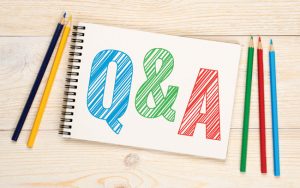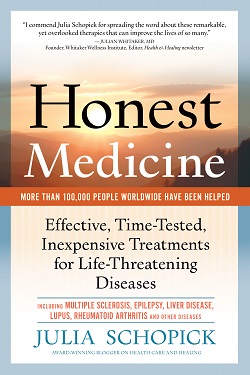PUBLISHED DECEMBER 2017
by
Julia Schopick, Author and Book Promotion Consultant --

Julie Schopick
In my September 2016 column for
IBPA Independent,
“Taking to the Waves: Using Radio to Get the Word Out,” I wrote about how to use radio interviews for disseminating your important messages and selling more books. I told you how to find the right programs for your message and gave you tips for how to be the best possible guest. (In other columns, I have shown you how to use other promotional methods, including Facebook, blog comments, and national months and weeks.)
In this column, we’ll take a step back, as I teach you how to create interest in your book and your important topic before you approach radio stations so that interviewers will want to feature you and your book on their shows.
It is no secret—or maybe it is!—that most producers and hosts will not read your book before deciding to give you a forum. While they will likely request a copy of your book, in most cases they will skim it, at best.
Consider your book a calling card. Having written it proves you are an expert. But in order to convince radio hosts and producers that you will be able to provide them with a scintillating interview, you’ll need to give them more concrete proof.
You will have to present your topic—or topics—to them in an exciting, easy-to-digest manner beforehand.
How will you do this?

Ever since my book,
HONEST MEDICINE, was published, I’ve experienced excellent results getting placements. I’ve been on over 200 radio shows, both terrestrial and online. (My book has also been featured in many influential publications.) I had assumed I was successful because of the professionally assembled media packet that accompanies my book. As a matter of fact, several media people have said as much. Mimi Stoneburner of KTIP Radio in California called it “clearly the best [media packet] ever sent to me and a dream for producers/writers.”
The press kit I sent Mimi—and all my potential interviewers—consists of:
- My book
- A flyer describing me and my book
- A review of the book
- Questions and answers
And the packet itself is color-coordinated, with a folder that blends with the color of my book’s cover. All of this is designed to catch the interest of my potential interviewers.
Which of the pieces of my media packet is the biggest influencer? Hands down, it is my Q&As. Their value to an author is twofold:
- Getting you the interviews
- Helping to make sure those interviews go well
The first question people ask me is: Why include the answers? Why not just the questions?
Indeed, many authors and publicists do provide questions for the interviewers without the answers. But the problem with providing only questions is that, without the answers, your interviewer won’t have a sense as to where you’ll be going with the interview. As radio show host Ric Bratton points out in “Taking to the Waves”: “I hate to ask a question to which I don’t know the answer. Knowing the answer gives me a better shot at the direction my guest wants to go in.”
Providing the answers also helps to facilitate a meaningful conversation between you and your host. Without knowing approximately how you intend to answer a question, your interviewer will be more likely to simply go to the next question on your list, instead of engaging you in a real conversation. Scintillating conversations are what great interviews are all about. And scintillating conversations sell books.
Knowing your questions and answers beforehand also helps you to feel more relaxed because you, too, will have a sense of where the interview will be going.
How should I write my Q&As?
First, your Q&As should condense the passion and mission of your book into 10 pages or less. Most authors object at first when I tell them their book needs to be condensed this way. Obviously, the whole book, with its numerous details, cannot be so briefly condensed. Your job in creating your Q&As will be to provide the essence—rather than a synopsis—of your book in these 10 (or fewer) pages.
This is actually a blessing, because it will force you to decide what makes your book most exciting to readers—and then convey that excitement in your Q&As. Listeners, of course, are your potential readers.
Ask yourself: What are the absolute essentials my audience needs to know about my book in order to be convinced that reading it will improve their lives?
With this in mind, your first question—and answer—should be a variation of “What made you decide to write this book?” Audiences love to hear an author’s personal story. And, when you’re writing your answer, make sure you tell your story in an exciting way. Write the way you talk. And no technical terms or jargon!
Does your book also contain other people’s real-life stories? If so, your Q&As should include one or two of the most compelling. Compelling stories will lead to the better conversations between you and your host. And better conversations sell books.

Julia Schopick's book HONEST MEDICINE
My book,
HONEST MEDICINE, features eight individual patient stories. While all the stories are compelling, for my Q&As I chose to highlight two of the most passion- and mission-driven because of their dramatic impact.
Don’t include boring statistics. If statistical information is important to your book, be sure to make it lively and interesting in your Q&As. For instance, one of the points of my book is that I am featuring inexpensive treatments that work as well as—or better than—the Big Pharma-driven treatments doctors usually prescribe. So, in my Q&As, I provide actual examples that are likely to shock my listeners: For instance, a $29,000-a-year drug for one autoimmune disease, which doctors prefer to prescribe instead of the $600-or-less-a-year drug, Low Dose Naltrexone, that I write about in my book.
If your book contains controversy, don’t shy away from it. Put it front and center. In my Q&As, in addition to the costs, I talk about the side effects of the drugs doctors prescribe instead of the inexpensive, non-toxic treatments I am writing about. I also address the reasons why more doctors aren’t prescribing these treatments.
Interviewers love to talk about takeaways their listeners will get from your book. Most message-driven books have such these kind of messages.
HONEST MEDICINE’s is to “follow your gut” and find another treatment when the treatments your doctor has prescribed aren't helping you.
What’s your book’s takeaway message? The Q&As for
HONEST MEDICINE that I share with my potential interviewers can be found
here. They have served me well.
I hope I have given you a road map to follow for writing questions and answers that will produce excellent radio interviews.
For a handy Q&A checklist,
click here.
Julia Schopick is the best-selling author of HONEST MEDICINE: Effective, Time-Tested, Inexpensive Treatments for Life-Threatening Diseases.
A seasoned radio talk show guest who has appeared on hundreds of shows, Julia is often invited back for follow-up interviews. In addition, she successfully uses social media, particularly Facebook, to promote her book. Julia coaches other authors on how to use these promotional techniques effectively. To learn about her coaching service, Honest Medicine Communications, go to HonestMedicineCommunications.com.
Write to her with questions, or to take advantage of her complimentary 15-minute book promotion consultation, at Julia@HonestMedicine.com. She looks forward to hearing from IBPA members.
Q&A Checklist:
1. No jargon; write the way you speak.
2. Edit your answers so they are “speakable.”
3. Memorize the essence of your answers but not the answers themselves verbatim. Ask yourself your questions as if you were being interviewed, and answer them without looking at your “cheat sheet.”
4. Have a friend ask you the questions. Ask them to stop you whenever:
- Clarification is needed
- You use jargon
5. Once you are sure you have your information down pat, conduct a mock interview with a friend who is knowledgeable about your topic.
6. Do several rehearsals of your Q&As until you are totally comfortable and sure that you are "ready for prime time!"